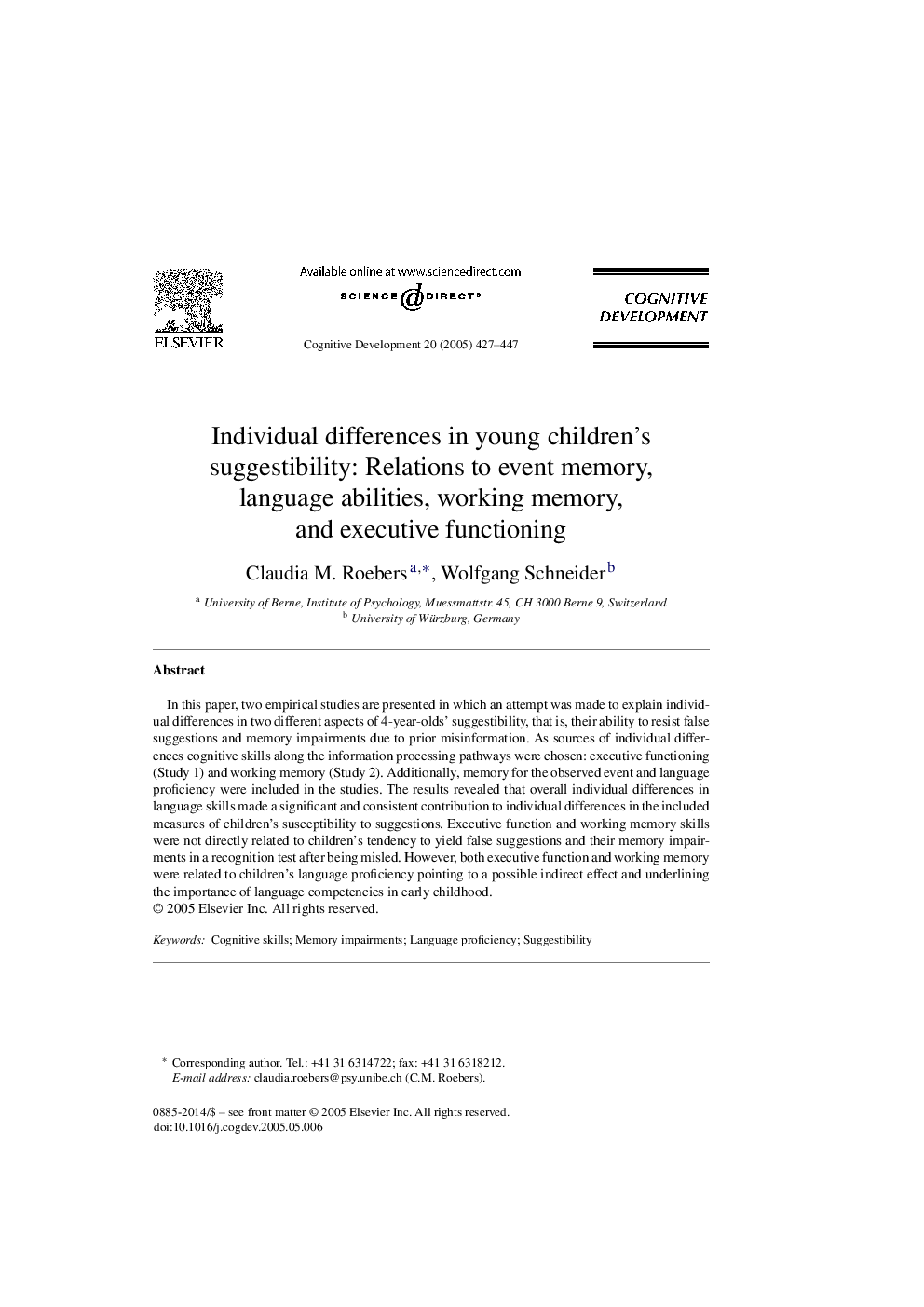| Article ID | Journal | Published Year | Pages | File Type |
|---|---|---|---|---|
| 10452315 | Cognitive Development | 2005 | 21 Pages |
Abstract
In this paper, two empirical studies are presented in which an attempt was made to explain individual differences in two different aspects of 4-year-olds' suggestibility, that is, their ability to resist false suggestions and memory impairments due to prior misinformation. As sources of individual differences cognitive skills along the information processing pathways were chosen: executive functioning (Study 1) and working memory (Study 2). Additionally, memory for the observed event and language proficiency were included in the studies. The results revealed that overall individual differences in language skills made a significant and consistent contribution to individual differences in the included measures of children's susceptibility to suggestions. Executive function and working memory skills were not directly related to children's tendency to yield false suggestions and their memory impairments in a recognition test after being misled. However, both executive function and working memory were related to children's language proficiency pointing to a possible indirect effect and underlining the importance of language competencies in early childhood.
Related Topics
Social Sciences and Humanities
Psychology
Developmental and Educational Psychology
Authors
Claudia M. Roebers, Wolfgang Schneider,
